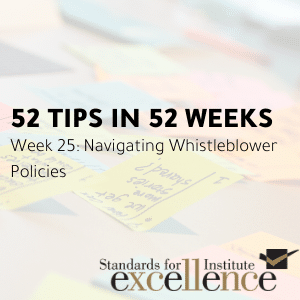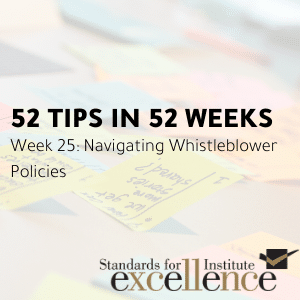

I read with interest a recent article from the Philadelphia Inquirer entitled “Philadelphia Mulls Protections for COVID-19 Workplace Whistleblowers.” (June 11, 2020 by Karen Kahn). The story discusses a bill that the Philadelphia City Council is considering which would protect employees who speak up about unsafe conditions in their workplaces related to COVID-19 risks and transmissions.
The story cites the findings from the National Employment Law Project (NELP)’s recent study, Silenced About COVID-19 in the Workplace by Irene Tung and Laura Padin. NELP’s report is a national study and illustrates “that retaliation against whistleblowers in the workplace is prevalent during the pandemic” and that “Black workers are more likely to work under conditions that are both hazardous and repressive.” The report goes on to say that “Black workers are more than twice as likely as white workers to have seen possible retaliation by their employer.”[1] The researchers used Google Consumer Surveys and polled 1,137 individuals in May 2020. These issues are so important for us to focus on and commit to redress.
As the Standards for Excellence: An Ethics and Accountability Code for the Nonprofit Sector states, “Organizations must provide employees, board members, and volunteers a confidential means to report suspected impropriety or misuse of organizational resources. Organizations should have in place a policy prohibiting retaliation against persons reporting improprieties.”
Nonprofit organizations should do all they can to foster a culture of openness and accountability. Nonprofit leaders should attempt to uncover and eliminate misconduct at the earliest possible stage whether the misconduct is related to finances, COVID-19 or something else entirely. Research supports that employees are more likely to make the decision to report internally when internal reporting channels are perceived as adequate.[2] Organizations should have a process and mechanism to encourage individuals associated with a nonprofit to report suspected impropriety.
With the advent of the American Competitiveness and Corporate Accountability Act of 2002 (Sarbanes-Oxley Act), more and more nonprofit organizations have been implementing whistleblower protection policies. While the Sarbanes-Oxley Act addresses governance standards and financial oversight in publicly traded companies, it does not specifically regulate nonprofit organizations – with two notable exceptions: whistleblower protection and document destruction. For nonprofit organizations, Sarbanes-Oxley requires all corporations, whether or not they are publicly traded, to adopt and abide by document destruction policies and whistleblower protections. In order for nonprofits to meet the requirements of the Sarbanes-Oxley Act, these two policies are needed.
As nonprofit leaders, we must make sure that we are not only complying with the law to the fullest extent but we are taking great care to ensure that our policies and processes are working well for our staff, board members, and those we serve. Instituting a whistleblower policy is one important way that nonprofits can do this in their day-to-day work.
For more information on whistleblowing in nonprofits, we encourage you to check out the Standards for Excellence educational resource packet “Reporting Misconduct and Whistleblower Protection” which includes benefits of reporting improprieties, examples of misconduct and improprieties, confidential means to report improprieties, protections for those that blow the whistle, implementing a whistleblower policy, as well as sample whistleblower policy and reporting form.
This educational resource packet and the full series of all packets – including sample policies, tools and model procedures to help nonprofits achieve best practices in their governance and management – can be accessed by contacting a licensed Standards for Excellence replication partner, one of the over 150 Standards for Excellence Licensed Consultants, or by becoming a member of the Standards for Excellence Institute.
We share our sincere wishes for your continued good health and patience as we all navigate these challenging and uncertain times.
[1] Tung, Irene and Padin, Laura, Silenced About Covid-19 in the Workplace, National Employment Law Project, June 10, 2020, https://www.nelp.org/publication/silenced-covid-19-workplace/.
[2]Watts, L., & Ronald Buckley, M. (2017). A Dual-Processing Model of Moral Whistleblowing in Organizations. Journal of Business Ethics, 146(3), 669–683.



